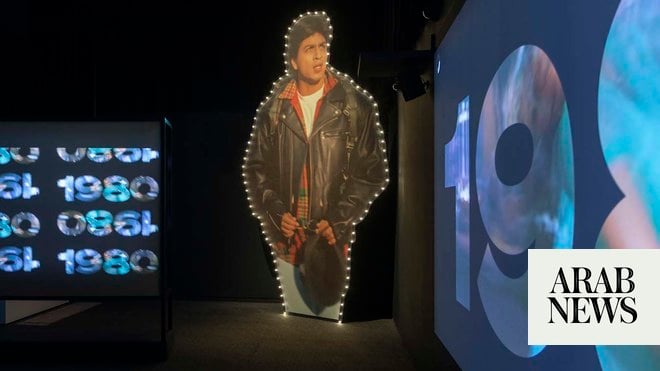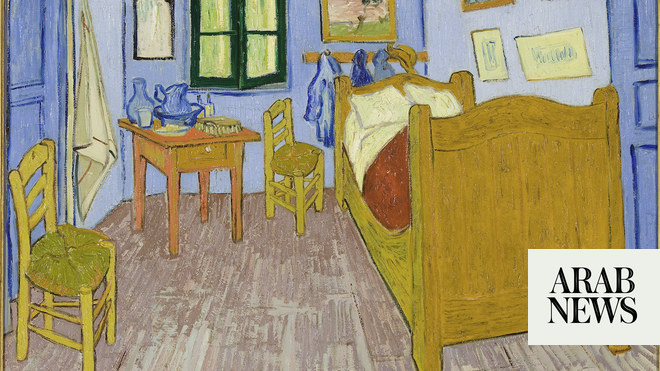
ABU DHABI: Bollywood has come to the UAE as the Louvre Abu Dhabi unveiled its newest art exhibition, on the history of Indian cinema.
For the latest updates, follow us on Instagram @arabnews.lifestyle
Home to one of the world’s largest film industries, India reportedly releases more than 1,500 genre-varying movies in 20 languages per year.
Running until June 4, “Bollywood Superstars” features a wide selection of paintings, photographs, costumes, tapestries and photographic objects. A significant number of the displayed items are on loan from the Musee du Quai Branly — Jacques Chirac in Paris, which specializes in indigenous art.
Indian cinema was developed in the 20th century, but as the exhibition demonstrates, narration and moving images have been present long before the modern era. In a way, the nation’s vibrant visual culture, folk performing arts, shadow puppetry, ancient epics and mythologies — dating back to 2,000 years — led to the birth of Bollywood. Some of the displayed objects represent the celebration and revival of religious, cultural figures, and heroes.
In the early days, traveling story-tellers roamed around, narrating scenes of important epics. A showcased mid-20th century wooden altar, resembling a toy box, shows on its detailed panels painted characters and scenes from the battle-themed “Ramayana” epic. It almost looks like a contemporary film set, where movement, costume, and staging are in action.
Other objects reveal deities, taking them out of their temples and closer to worshippers. There is a colorful wooden bioscope that projects with light images of a deity. “Like a music box, a hand crank slides images for viewers to see peering through small peepholes,” reads a label next to the device.
Movies arrived in India via the revolutionary French Lumiere brothers, who invented photographic equipment, in 1896. As the years advanced, filmmaking became a weapon against colonial rule, asserting identity. Modern pioneering directors, such as the late Dadasaheb Phalke (dubbed “the Father of Indian Cinema”), were inspired by their own literature and culture, manifesting in their creations.
The exhibition ends with a presentation of popular Hindi cinema today, witnessing a boom from the 1970s onwards with luminaries Amitabh Bachchan, Shashi Kapoor, and Shah Rukh Khan on the rise. Whether in old or modern times, “Bollywood Superstars” is a reminder of a human need to tell stories.












